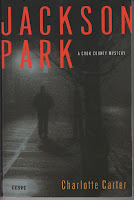Camacho’s
first thriller, The Payback Assignment, disappointed
me. He redeemed himself in his second thriller. Orion is packed with as
the Electrifying Duo, Morgan Stark and Felicity O’Brien, battle a big,
handsome, dangerous Irishman. Unlike the villain in The Payback Assignment,
Ian Michael O’Ryan, who got the nick name Orion, after Orion, the great hunter
in Greek mythology, while hunting big game in Africa, is bigger than life both
physically and mentally.
Felicity’s Uncle Sean Sullivan,
the priest of a small village in Ireland, comes to the U. S. to hire Morgan to
help stop O’Ryan, whom he considers a terrorist, from recruiting the young men in
the village. He believes O’Ryan wants to revive the IRA and restart ”the
troubles” (religious wars). He doesn’t want O’Ryan killed, just stopped.
When
the Electrifying Duo arrive in the village, Morgan, a Black man in Ireland,
knows he’ll have to out drink and out fight the biggest dude in the pub to be
accepted. He challenges and defeats Max Grogan in arm wrestling and drinking
contests, thus becoming a hero to the patrons.
Once
he is comfortable with the residents of the village, he and Felicity devise
plans to stop O’Ryan. She devises the first of three plans. O’Ryan gets money
he needs for his operation in Ireland from organizations that sponsor
terrorism. She cleans out his bank accounts, which lack of ready cash puts him
in a bind. Sorry, to explain how she does it would be a spoiler.
Morgan
directs the operation to deprive O’Ryan of arms he has bought for a Middle
Eastern terrorist. When the shipment arrives on the Irish coast, with the help
a group of gypsies among whom Felicity lived after running away from home when
she was 16, he makes sure the arms will not get to O’Ryan. O’Ryan must refund
the customer’s money.
To get
the money, he enters a motorcycle race in France, which he has never lost.
Morgan enters the race under the Seagrave Industries sponsorship and riding one
of their bikes. His objective is not to win but to make sure O’Ryan loses. Of
course he knows O’Ryan will have his henchmen station along the course to take
out any rider in the lead. A fact that spices up the scenes of the race.
O’Ryan
doesn’t take Morgan’s interference very well. His men later ambush Morgan, who
takes out three of them before they subdue him. O’Ryan holds Morgan on an island
off the coast of southern France. Believing Morgan works for a government
agency, he enjoys torturing him to try to get him to reveal which agency.
With
her partner missing, Felicity goes into action. She doesn’t accept the
possibility that he might be dead. he is too far away for her to sense his
presence. But she is able from the direction in which the van fled to start out
on the trial. She and Paul continue to the coast until she senses she is close,
and learns about an isolate island. Once she is on the island and inside the
house, she tangles with O’Ryan.
But it
isn’t over. As Felicity is wheeling Morgan out of the hospital, they feel
danger but too late to get back in the hospital. A man named Youssef and his
henchmen stop them. The electrifying duo, Claudette, and Paul face their guns.
Youssef was O’Ryan’s customer and now he blames Morgan for causing him to lose the
weapons. Again, I can’t be a spoiler.
Camacho
makes sure his readers are on the side of good when he has O’Ryan suggest that
Morgan is no different from him—both are in a way mercenaries. However, Morgan considers
what he does—helping other honest folks—as an honor. O’Ryan’s terrorist activities
are about power. Orion is better than The Payback Assignment
because it is better plotted and the villain is more worthy of the Electrifying
Duo’s many talents.
The introduction
of O’Ryan’s customer at the end disappointed me. It was a loose end that didn’t
need wrapping up.
 Every December, to give my brain a break, I
relax from reading crime fiction by reading a so-called literary novels. I choose
the novels at random. This year I plan to read two novels—Never Let Me Go by Kazuo Ishiguro and Tumbling, a first novel by Diane McKinney-Whetstone. If I can
find the time, I might read one of the novels I have on my Kindle or Nook. On
the Kindle, I have current crime fiction, and on the Nook, I have crime novels
from the 19th century that I downloaded from the Gutenberg website.
Every December, to give my brain a break, I
relax from reading crime fiction by reading a so-called literary novels. I choose
the novels at random. This year I plan to read two novels—Never Let Me Go by Kazuo Ishiguro and Tumbling, a first novel by Diane McKinney-Whetstone. If I can
find the time, I might read one of the novels I have on my Kindle or Nook. On
the Kindle, I have current crime fiction, and on the Nook, I have crime novels
from the 19th century that I downloaded from the Gutenberg website. 





